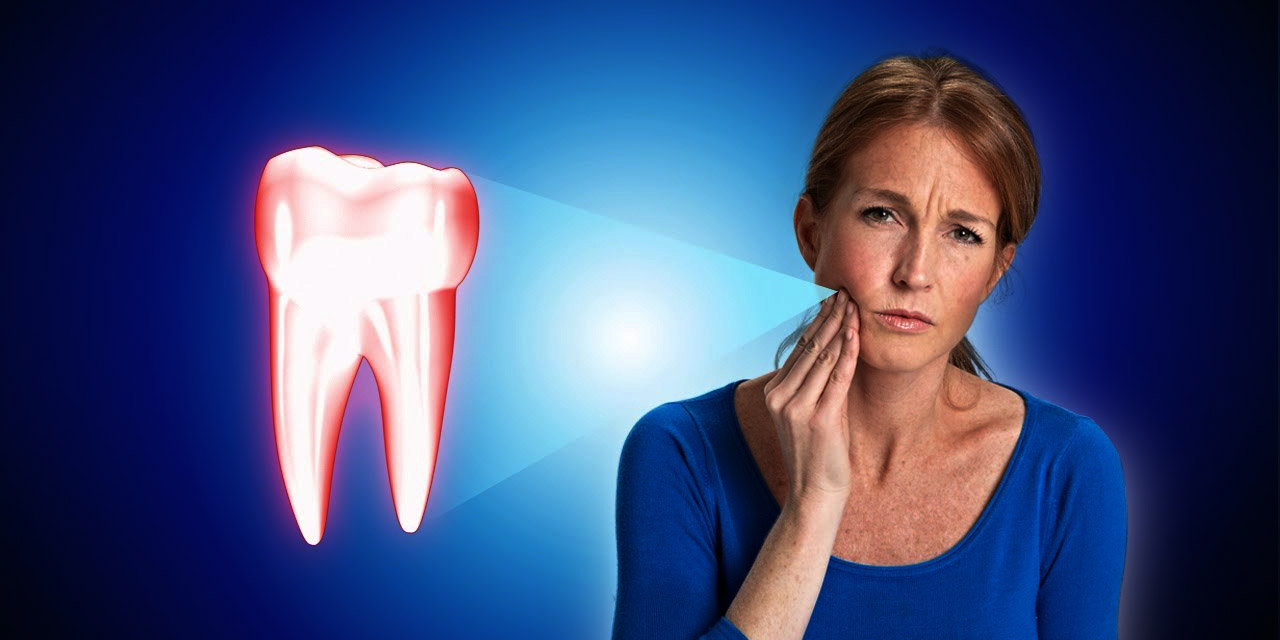


Toothache, also known as dental pain, is pain in the teeth and/or their supporting structures, caused by dental diseases or pain referred to the teeth by non-dental diseases.”
Common causes include inflammation of the pulp, usually in response to tooth decay,dental trauma, or other factors, dentin hypersensitivity (short, sharp pain, usually associated with exposed root surfaces),apical periodontitis (inflammation of theperiodontal ligament and alveolar bonearound the root apex), dental abscesses(localized collections of pus, such as apical abscess, pericoronal abscess, andperiodontal abscess), alveolar osteitis ("dry socket", a possible complication of tooth extraction, with loss of the blood clot and exposure of bone), acute necrotizing ulcerative gingivitis (a gum infection, also called "trenchmouth"), and others.
Pulpitis is classified as reversible when the pain is mild to moderate and lasts for a short time after a stimulus (for instance, cold or sweet); or irreversible when the pain is severe, spontaneous, and lasts a long time after a stimulus. Left untreated, pulpitis may become irreversible, then progress to pulp necrosis(death of the pulp) and apical periodontitis. Abscesses usually cause throbbing pain. The apical abscess usually occurs after pulp necrosis, the pericoronal abscess is usually associated with acute pericoronitis of a lowerwisdom tooth, and periodontal abscesses usually represent a complication of chronic periodontitis (gum disease). Much less commonly, non-dental conditions can cause toothache, such as maxillary sinusitis, which can cause pain in the upper back teeth, orangina pectoris, which can cause pain in the lower teeth.
Toothache is the most common type oforofacial pain and, when severe, it is considered a dental emergency, since there may be a significant impact on sleep, eating, and other daily activities. It is one of the most common reasons for emergency dental appointments. Correct diagnosis can sometimes be challenging. The treatment of a toothache depends upon the exact cause, and may involve a filling, root canal treatment,extraction, drainage of pus, or other remedial action. The relief of toothache is considered one of the main responsibilities of dentists. In 2013, 223 million cases of tooth pain occurred as a result of dental caries in permanent teeth and 53 million cases occurred in baby teeth. Historically, the demand for treatment of toothache is thought to have led to the emergence of dental surgery as the first specialty of medicine.
For the dentist, the goal of treatment generally is to relieve the pain, and wherever possible to preserve or restore function. The treatment depends on the cause of the toothache, and frequently a clinical decision regarding the current state and long-term prognosis of the affected tooth, as well as the individual's wishes and ability to cope with dental treatment, will influence the treatment choice.
We look forward to hearing from you.
Monday 9:00 am-5:00 pm
Tuesday 9:00 am-5:00 pm
Wednesday 9:00 am-5:00 pm
Thursday 9:00 am-5:00 pm
Friday 9:00 am-5:00 pm
Saturday appt. only
Sunday closed
Send Us An Email Today! We'll Provide You With That Winning Smile!